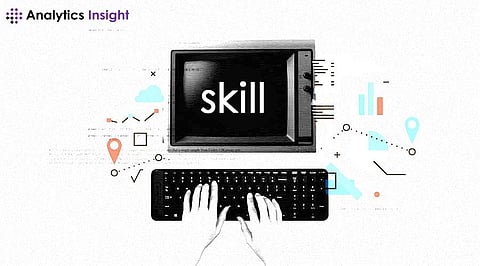

The AI revolution has witnessed significant growth in the data analysis domain. Proficient Data analysis of this enormous amount of data enhances the accuracy and efficiency of the decision-making process. To convert data into relevant information, professional skills are required to analyze, organize, and derive insights from the data.
With the increasing demand for data science, there is an increasing opportunity for data scientists. The use of Big Data as an insight-generating engine has increased the demand for data scientists across all industries. Be it product improvisation, customer retention, or finding new business opportunities, organizations are thriving on the skills of data scientists to grow and stay ahead in this competitive world of business.
Here we will enlist the technical skills and non-technical skills that every data scientist must possess:
One of the popular high-level programming languages is Python. Python is adopted worldwide and is suitable for data analysis tasks. With the usage of Python, you can perform statistical analysis and data visualization. The programming language, Python is also applied to deep learning and machine learning.
R is specifically developed for statistical and computer analysis. R is widely used in the financial sector and has wide applications in data analysis. It has a huge collection of data science that is available in the Comprehensive R Archive Network (CRAN). Some of the libraries of R include tidyr and ggplot2. Though there is a growing demand for R programmers, there are fewer users who are skilled in it as compared to Python.
Data analysis is not possible without the inclusion of mathematics and statistical analysis in it. Statistics is crucial while applying data techniques, creating data models, and having a proper understanding of the data that you have been working with. Acquiring knowledge of mathematical instruments like probability, linear algebra, and calculus is important for analyzing data.
One of the essential skills that every data scientist must have is SQL (Structured Query Language). SQL is the standard tool that structures and manages relational databases. Structured data that have relations in common are stored in relational databases. SQL can be convenient to learn as compared to Python and R.
Unstructured data cannot be stored using SQL, for that you need NoSQL databases that refer to Not only SQL. NoSQL is capable of managing large volumes of unstructured data. A majority of data that gets generated every day are unstructured and difficult to store.
Another difficult task is getting an overview of the findings of data analysis. Summarizing the findings of data analysis helps to make decisions for the organizations. Data visualization provides a graphical representation of data in the form of charts and graphs. Data visualization has been evolving through the contributions of psychology and neuroscience that are helping data scientists summarize and communicate information with the help of visuals.
Machine learning helps to develop algorithms that help to perform tasks. Be it Netflix recommendations to Instagram filters, it is used widely in today's world. The increasing use of machine learning has increased the demand for data scientists to possess this skill.
Deep Learning is a part of machine learning that involves algorithms called artificial neural networks. Artificial neural networks are inspired by the mechanism of how the human brain functions and works, which can be seen in virtual assistants and robots. Deep learning is complex and involves an advanced level of programming.
Natural language processing (NLP) extracts information from normal language and text. The NLP techniques are involved in chatbots, search engines, and recommendation systems.
With the rapidly growing large volume of the data ecosystem, tools are required to analyze big data which is reliable and at a faster pace. These involve database management for real-time data.
One of the non-technical skills that a data scientist must possess is communication. Communication is the key to everything. It is just about presenting the analysis but communicating it effectively is important for decision making. Data scientists must possess the quality to convey stories about data.
Along with this, the data scientist must also possess skills like data manipulation, visualization, and prediction of data. Staying updated with the new trends of data analysis will keep you one step ahead in this competitive scenario.
Join our WhatsApp Channel to get the latest news, exclusives and videos on WhatsApp
_____________
Disclaimer: Analytics Insight does not provide financial advice or guidance. Also note that the cryptocurrencies mentioned/listed on the website could potentially be scams, i.e. designed to induce you to invest financial resources that may be lost forever and not be recoverable once investments are made. You are responsible for conducting your own research (DYOR) before making any investments. Read more here.
